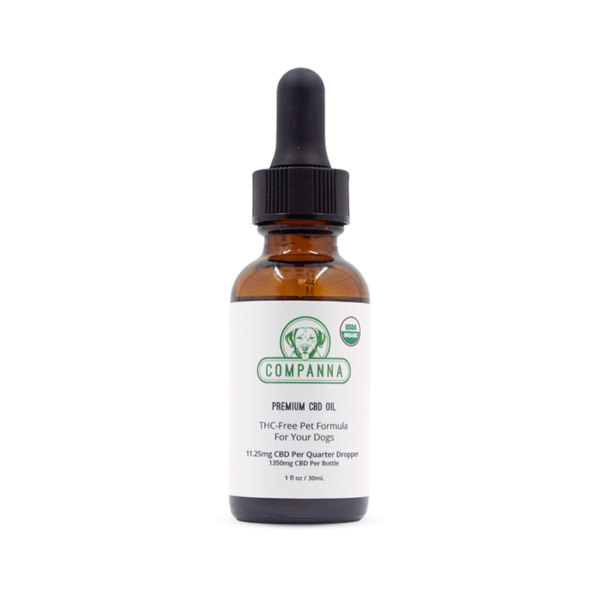How Do I Stop My Dog’s Snoring
Snoring is a common occurrence in many dogs, but there are times when it hints at a more serious underlying condition. By what is typical for your dog, you can usually tell if it’s harmful. If your dog’s always snored, there’s a good chance it will continue to do so. If they begin doing it out of the blue, look into why because this might be an indication of something more serious. This article will go through everything you need to know about canine snoring and what can be done to help.
What Exactly is Dog Snoring?
Snoring isn’t always loud enough to wake up everyone in the house, so you might not know for sure whether or not your dog is snoring. This may seem like an odd question at a glance, but you may not be certain if your dog is snoring or if you can just hear them breathing. Understanding what snoring is for your dog and how snoring works could help you figure out if there is an issue to look into or not.
Snoring is a vibration in the throat and mouth’s soft tissues. It’s not just about louder breathing; abnormal airflow is to blame as well. You’ll frequently detect a vibration quality in the sound that you don’t hear on just loud breathing.
What is Making My Dog Snore
Snoring occurs when there isn’t enough space for air to pass through as it needs to. This might happen because they’re resting on their back and their tongue is blocking the way, or it could be caused by their breed’s snout shape or allergies, or it could point to a medical issue.
Snoring could be an indication of:
- an allergy
- a common pet cold
- a foreign object or obstruction in their throat
- obesity
- an abscessed tooth
- sleep apnea
- hypothyroidism
- a benign or cancerous growth
You may quickly determine which of the numerous causes of dog snoring is responsible for your pet’s noise by conducting a brief examination.
If your pet’s condition is due to an allergy, you may observe a runny nose, watery eyes, sneezing, coughing, breathlessness or panting, digestion problems, or lack of appetite. You may be able to tell right away if they have been exposed to something unusual or a particularly large amount of anything, such as increased pollen setting off seasonal allergies; or maybe you have introduced something new into the environment or routine, ,a new food, or a cat, etc
If your dog swallows a smaller item that isn’t capable of choking them, but could block their airway enough to cause snoring, you may notice coughing and recall the fact that the dog was playing with something they might have eaten or a toy or a piece of one of their toys has disappeared.
If hypothyroidism is to blame for the new snoers, your dog will probably show signs such as hair thinning, baldness, a dull coat, skin scaling, lethargy, weight gain, or cold intolerance.
Snoring might be caused by obesity if the dog is considerably overweight. The waistline of your pet should be obvious. Depending on the breed, it may not be as apparent, but all dogs should have one. If your dog is too thick or just round, no matter how adorable it is, the weight that is causing the snoring may be harmful to their health, not to mention the snoring being detrimental to your sanity.
If your dog has sleep apnea, it will be difficult for them to get a good night’s sleep. They may frequently wake up, and they will not have the normal energy they should have since they are constantly running on a sleep debt.
Because some medicines relax the throat muscles of a dog, which may cause it to snore. You would probably know this was the case since the snoring first started only after your dog was administering the medicine. If this is causing you issues or concerns that it may have an impact on your dog’s health, you should consult with your veterinarian to see if a different medication might work.
In the case of breed related snoring, Black Russian Terriers, Boston Terriers, Boxers, Clumber Spaniels, English Bulldogs, Pugs, and Shih Tzus are all more likely to snore. These breeds were developed with a short nose but genetics didn’t catch up on the inside. A short dog is more likely to snore than a taller dog. Snoring isn’t guaranteed in any of these breeds, but it will be more likely to be an issue you might encounter.
Is it Normal That My Dog Snores?
To a certain degree. Some dogs, especially those listed above, continue to snore for the majority of their lives without causing any harm. If your dog is snoring loudly, has other symptoms that suggest something is wrong with them, or if they’ve just started snoring, you should take them to the veterinarian.
Diagnosing the Cause of Dog Snoring.
Your veterinarian will likely ask you a lot of questions, such as:
- when did the snoring start?
- have there been any changes that may cause allergies, an obstruction, etc.?
- what does the snoring sound like?
- do they have other symptoms?
You might want to record the snoring sound for the vet to hear instead of attempting to describe it.
The veterinarian will inspect the dog’s nose and throat for obvious symptoms or obstructions. They may also do blood tests and take their blood pressure to rule out certain possible snore-causing conditions.
How Do I Stop My Dog’s Snoring?
Sleeping position is one thing to look at
Dogs, like people, are more inclined to snore when they’re on their backs. If you change their position during sleep, they might stop snoring. Giving them a sleeping place that encourages them to curl up, whether it’s a specific dog bed or a couch with pillows all over it, is also helpful.
Limit exposure to allergens and toxins
Try to eliminate as many potential toxins as you can in your environment, this is beneficial for your health as well.
If you know what allergies your pet might have or what environmental triggers they are sensitive to, you can help reduce their exposure to it. To determine the source of an allergy, many individuals use the elimination approach.
Steps to limit potential allergens around your dog
- vacuum and dust on a more frequent basis
- change your air filter
- keep windows closed where wind can blow pollen into the home
- pollen should be less damaging at different times of the day, time their walks accordingly, if possible
- keep them away from cats
- change their food, if you suspect a food allergy
Protect your pets from cigarette smoke
Secondhand smoke may contribute to or exacerbate snoring in your dog. Consider quitting smoking permanently, or at the very least smoke outside of the dog’s sight.
Add moisture in the air
Dogs, like us, are affected by air that is too dry. You might consider purchasing a humidifier or utilizing your humidifier more frequently to see if it helps your dog’s snoring.
Trim off that excess doggy fat
If your dog’s snoring is caused by excess weight, tackling their weight may get rid of the problem. If their diet is poor, make some dietary changes to include a higher-quality dog food or restrict treats and scraps, if applicable. Your dog most likely needs more activity, so take them for more walks and play with them more. Take a minute to read this blog about CBD for dogs!






